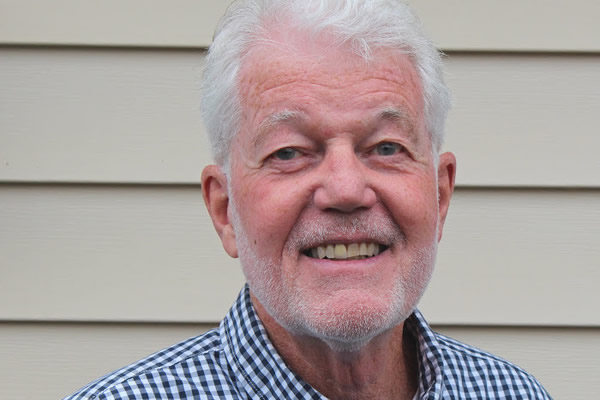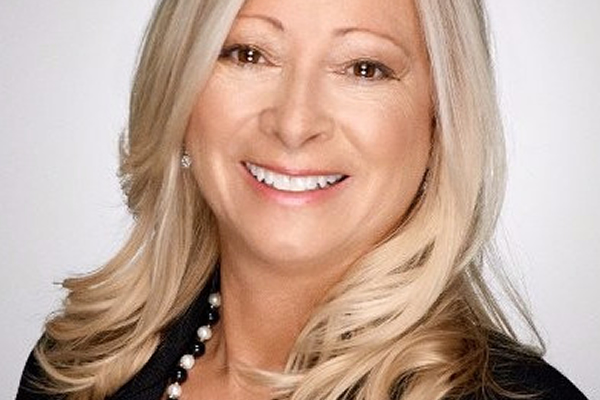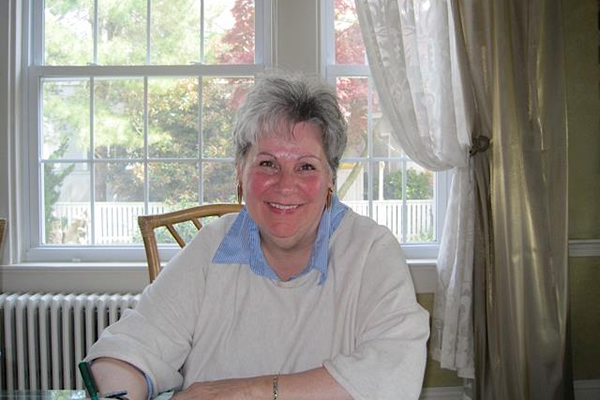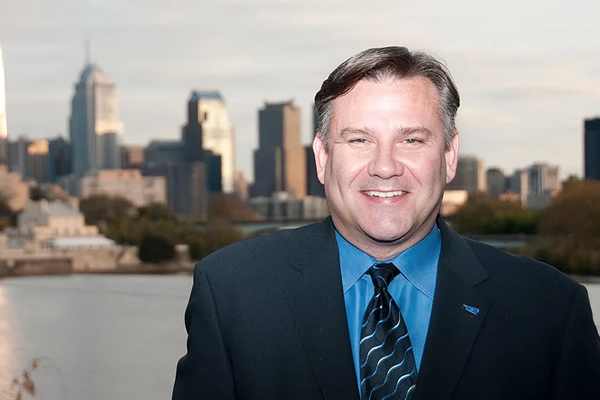Politics
Meet 4 candidates vying for 2 Rehoboth commissioner seats
Clear Space Theatre permit flap roils race

Four candidates are competing for two seats for City Commissioner in the Aug. 14 City of Rehoboth Beach election. The Blade interviewed each; below are their remarks and a preview of the key issues in the race.
Incumbent Richard Byrne

Byrne was elected a city commissioner in 2018, contributing to projects like the creation of Steve Elkins Way and adding city committees to improve Rehoboth.
“It’s been just an honor to serve these past three years, very inspiring, challenging and a very productive time,” Byrne said. “I feel that I have the energy, I have the know-how and I certainly have the experience to continue in this role working on behalf of the residents, and our voters all across the city.”
Byrne voted against reversing the approval for Clear Space Theatre’s site plan in June. The planning commission’s and inspectors’ effort toward its approval seemed neither arbitrary nor capricious, Byrne said.
“I’ve also been one of many who is advocating the need for our city to in the future, employ the services of a professional urban planner to help us and guide our work as we go forward,” Byrne said. “This is my community. It’s my only community. My only home. I just love this community, and I care deeply about it.”
Planning Commissioner Rachel Macha

Macha has been a member of the planning commission since 2019 and works through the comprehensive development plan alongside the other members and additionally reviews residential and commercial land use projects.
Macha is also involved in the plant, shade, and tree commission that approves the removal of trees in order to preserve the canopy. She has worked on projects such as Rehoboth’s Main Street and a campaign called Respect Rehoboth, a way to enforce social distancing and mask mandates.
“Rehoboth is a hidden gem, I mean it has ‘the nation’s summer capital’ as its tagline. I think there are just a lot of people that have found this is kind of a slice of heaven,” Macha said. “I just have had a real love for Rehoboth all my life and my kids have now had that same love for it, and I just want that to continue for generations to come.”
The reversed approval of Clear Space Theatre’s construction plan was disappointing, according to Macha.
“There were some commissioners and the mayor that were undermining the hours and effort that the planning commission not once, but twice worked through,” Macha said. “I just think it was unfair, and also just disrespectful, frankly, to really call out the planning commission on not doing a thorough job.”
Former Commissioner Toni Sharp

Sharp served as a city commissioner from 2013 to 2019 and, in her tenure, Sharp worked to budget a communications position within the commission and helped launch a platform to receive feedback from the community.
Sharp was involved in many other committees during her term and needed some time away, she said.
“I am reinvigorated, I have much more perspective and I think, it may happen this way for a lot of people, that when you step away from something, you really get a clarity of exactly what you want to do,” Sharp said. “I know how to be a commissioner, I know how to get things done. And now it is just a matter of what are the most pressing things that I believe we need to get done here in Rehoboth.”
Like many residents in Rehoboth, Sharp wants to see Clear Space Theatre have a place in the city, despite Rehoboth’s restrictions for parking.
“Now, what’s the right process to get from point A, which is where we are now, to point B, to keep moving forward to get a mutually agreeable situation?” Sharp asked her then fellow commissioners at an April 2019 hearing. “Do we have to have a different discussion about parking in this particular area of town? It feels like a different discussion.”
Tim Bennett

Bennett worked as the director of marketing and advertising programs at Subaru of America for 15 years, including his help to hire lesbian former tennis champion Martina Navratilova. He has worked to benefit the LGBTQ community through marketing.
Bennett gained interest in working on city committees and offered his services wherever they were needed, he said.
“I decided to come in as someone with no political history here, unencumbered,” Bennett told the Blade. “I’ve had no history here, I’m a new person, it’s time for getting some fresh ideas and new voices into the city.”
Bennett supports a full-time city planner position that would help in land redevelopment for the city, according to his website. Clear Space Theatre’s reversed approval was rushed and traffic, parking and the building size were the main problems, said Bennett.
“I think it’s such sloppy government, and I think it’s sad all around because if the plans exist, we wouldn’t even be having this conversation,” Bennett said. “I understand that there are going to be traffic problems, there are going to be parking problems. It needs to be mitigated, of course, and we just have to follow the rules and do the right thing.”
Bennett attributes much of his passion to his time at Marietta College, a small school in Ohio.
“There was always this thing of being taught when you graduated to find a way to be of use and try to make things a little better than you found them, or in the importance of showing up,” Bennett said. “I’ve always remembered that and I’ve tried to always strive to do that with work. When you’re involved in something or you take on a project it’s, ‘Can I be of use, can I contribute something, and can I be of help?’”
Congress
House Democrats oppose Bessent’s removal of SOGI from discrimination complaint forms
Congressional Equality Caucus sharply criticized move

A letter issued last week by a group of House Democrats objects to Treasury Secretary Scott Bessent’s removal of sexual orientation and gender identity as bases for sex discrimination complaints in several Equal Employment Opportunity forms.
Bessent, who is gay, is the highest ranking openly LGBTQ official in American history and the second out Cabinet member next to Pete Buttigieg, who served as transportation secretary during the Biden-Harris administration.
The signatories to the letter include a few out members of Congress, Congressional Equality Caucus chair and co-chairs Mark Takano (Calif.), Ritchie Torres (N.Y.), and Becca Balint (Vt.), along with U.S. Reps. Nikema Williams (Ga.), Hank Johnson (Ga.), Raja Krishnamoorthi (Ill.), Delia Ramirez (Ill.), Joyce Beatty (Ohio), Lloyd Doggett (Texas), Eleanor Holmes Norton (D.C.), Josh Gottheimer (N.J.), and Sylvia Garcia (D-Texas).
The letter explains the “critical role” played by the EEO given the strictures and limits on how federal employees can find recourse for unlawful workplace discrimination — namely, without the ability to file complaints directly with the Employment Opportunity Commission or otherwise engage with the agency unless the complainant “appeal[s] an agency’s decision following the agency’s investigation or request[s] a hearing before an administrative judge.”
“Your attempt to remove ‘gender identity’ and ‘sexual orientation’ as bases for sex discrimination complaints in numerous Equal Employment Opportunity (EEO) forms will create unnecessary hurdles to employees filing EEO complaints and undermine enforcement of federal employee’s nondiscrimination protections,” the members wrote in their letter.
They further explain the legal basis behind LGBTQ inclusive nondiscrimination protections for federal employees in the EEOC’s decisions in Macy v. Holder (2012) and Baldwin v. Foxx (2015) and the U.S. Supreme Court’s decision in Bostock v. Clayton County (2020).
“It appears that these changes may be an attempt by the department to dissuade employees from reporting gender identity and sexual orientation discrimination,” the lawmakers wrote. “Without forms clearly enumerating gender identity and sexual orientation as forms of sex discrimination, the average employee who experiences these forms of discrimination may see these forms and not realize that the discrimination they experienced was unlawful and something that they can report and seek recourse for.”
“A more alarming view would be that the department no longer plans to fulfill its legal obligations to investigate complaints of gender identity and sexual orientation and ensure its
employees are working in an environment free from these forms of discrimination,” they added.
Congress
Senate parliamentarian orders removal of gender-affirming care ban from GOP reconciliation bill
GOP Senate Leader John Thune (S.D.) hoped to pass the bill by end-of-week

Restrictions on the use of federal funds for gender-affirming care will be stripped from the Republican-led Senate reconciliation bill, following a ruling by the Senate parliamentarian on Tuesday that struck down a number of health related provisions.
The legislation banned coverage for transgender medical care through Medicaid and the Children’s Health Insurance Program, language that was also included in the House version of the bill passed on May 22 with a vote of 215-214.
The parliamentarian’s decision also rejected Republican proposals for a Medicaid provider tax framework, which allows states to charge health care providers and use the funds to support their programs, along with broader cuts to Medicaid.
Amid calls to override Tuesday’s ruling from Republicans like U.S. Rep. Greg Steube (Fla.), GOP Senate Majority Leader John Thune (S.D.) told reporters “That would not be a good outcome for getting a bill done.”
He also acknowledged that the timing and schedule might have to be adjusted. Senate Republicans had hoped to pass the reconciliation bill by the end of this week, though this was not a legal or procedural deadline.
Dubbed the “one big, beautiful bill” by President Donald Trump, the legislation would extend tax breaks from 2017 that overwhelmingly benefit the wealthiest Americans and corporations. To cover the cost, which is estimated to exceed $4 trillion over 10 years, the bill would make drastic cuts to social welfare programs, particularly Medicaid.
Democrats are not in a position to negotiate across the aisle with Republicans holding majorities in both chambers of Congress, but for months they have been calling attention to the effort by their GOP colleagues to strip Americans of their health insurance to pay for the tax breaks.
The Congressional Budget Office estimates that 10.9 million people would lose their coverage, either through Medicaid or the Affordable Care Act marketplaces. Some Republicans like U.S. Sen. Josh Hawley (Mo.) are pushing back against the deep cuts to Medicaid, arguing they would be devastating for many of their constituents and also to hospitals, nursing homes, and community health care providers in rural areas.
In a statement emailed to the Washington Blade on Tuesday, U.S. Senate Democratic Whip Dick Durbin (Ill.) said, “Anti-trans extremists are attempting to use the full power of the government to hurt kids, and recent Supreme Court decisions in Skrmetti and Medina are enabling their quest.”
While today’s ruling by the Senate parliamentarian is a temporary win, I will keep pushing back on these shameful attempts to harm trans kids and their families for trying to live authentically,” said the senator, who also serves as ranking member of the powerful Senate Judiciary Committee.
U.S. Rep. Mark Takano (D-Calif.), who is gay and chairs the Congressional Equality Caucus, also shared a statement with the Washington Blade addressing the parliamentarian’s ruling:
“This ruling by the Senate Parliamentarian is a win for the transgender people who rely on Medicaid and CHIP to access the healthcare they need to live fuller, happier, and healthier lives—but the fight is not over yet,” the congressman said.
“Republican Senators must abide by her ruling and remove the ban from the final version of Trump’s Big Ugly Bill,” he said. “Yet, even with this provision removed, this bill is terrible for the American people, including trans Americans. Every Equality Caucus member voted against it in the House and we’re ready to do so again if the Senate sends it back to the House.”
The Human Rights Campaign issued a press release with a statement from the organization’s vice president for government affairs, David Stacy:
“The fact remains that this bill belongs in the trash. It continues to include devastating cuts to health care programs — including Medicaid — that would disproportionately harm the LGBTQ+ community, all so the already rich can receive huge tax cuts,” Stacy said.
“While it comes as a relief that the Senate parliamentarian concluded that one provision in the nightmarish reconciliation bill that would have denied essential, best practice health care to transgender adults does not belong, we aren’t done fighting,” he said. “With attacks on our community coming from many directions, including the Supreme Court, we will work to defeat this bill with everything we’ve got.”
Congress
Murkowski, Shaheen reintroduce Global Respect Act
Bill would sanction foreign nationals who commit anti-LGBTQ human rights abuses

U.S. Sens. Lisa Murkowski (R-Alaska) and Jeanne Shaheen (D-N.H.) on Wednesday once again introduced a bill that would sanction foreign nationals who carry out human rights abuses against LGBTQ and intersex people.
The two senators have previously introduced the Global Respect Act. Co-sponsors include U.S. Sens. Chris Van Hollen (D-Md.), Chris Murphy (D-Conn.), Jeff Merkley (D-Ore.), Cory Booker (D-N.J.), Peter Welch (D-Vt.), Brian Schatz (D-Hawaii), Edward Markey (D-Mass.), Tammy Baldwin (D-Wis.), and Ron Wyden (D-Ore.)
“Around the world, individuals who are part of the LGBTQ+ community are in danger for simply existing,” said Murkowski in a press release. “Hate and violence cannot and should not be tolerated. I’m hopeful that this legislation will establish actionable consequences for these inexcusable human rights violations, and create a safer world for all people — regardless of who they are or who they love.”
Shaheen in the press release notes “the risk of personal harm for LGBTQI individuals for publicly identifying who they are or expressing who they love has tragically increased in recent years.”
“Human rights, as defined by the Universal Declaration of Human rights, recognizes that global freedom, justice, and peace depend on ‘the inherent dignity’ and ‘the equal and inalienable rights of all members of the human family,” said the New Hampshire Democrat. “LBGTQI human rights are universal human rights. We must ensure that we hold all violators of those rights accountable.”
The promotion of LGBTQ and intersex rights abroad was a cornerstone of the Biden-Harris administration’s foreign policy.
The current White House has suspended most foreign aid. The elimination of these funds has left the global LGBTQ and intersex rights movement reeling.
-

 U.S. Supreme Court4 days ago
U.S. Supreme Court4 days agoSupreme Court upholds ACA rule that makes PrEP, other preventative care free
-

 U.S. Supreme Court4 days ago
U.S. Supreme Court4 days agoSupreme Court rules parents must have option to opt children out of LGBTQ-specific lessons
-

 Television5 days ago
Television5 days ago‘White Lotus,’ ‘Severance,’ ‘Andor’ lead Dorian TV Awards noms
-

 Music & Concerts5 days ago
Music & Concerts5 days agoBerkshire Choral to commemorate Matthew Shepard’s life












